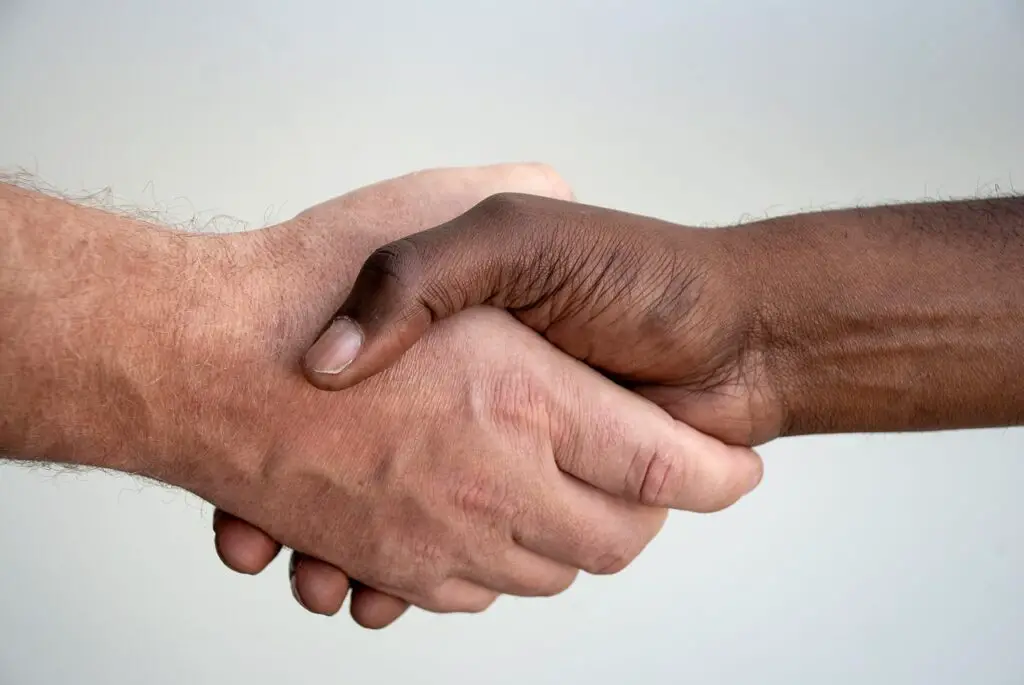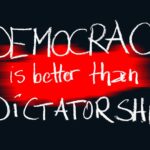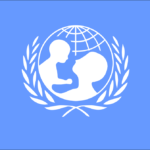We hope you enjoy our articles. Please note, we may collect a share of sales or other compensation from the links on this page. Thank you if you use our links, we really appreciate it!
Published January 10, 2022
On December 26, 2021, the Archbishop Desmond Mpilo Tutu, another great 20th century moral leader, passed away at 90 years of age after long term health battles. Along with Nelson Mandela in South Africa, Tutu was recognized the world over as a staunch anti-apartheid activist. Mandela, of course, was tied to the political wing of the movement while Tutu was related to the religious wing. A concerted effort of various forces from political to religious to business to international helped bring down apartheid. I would argue that all of these pillars were needed to defeat apartheid, but what was needed to save South Africa from imploding after apartheid ended could only be accomplished through the spirit of forgiveness.
South Africa was on the brink of civil war, and longtime feelings of vengeance due to apartheid’s hateful legacy of separation and oppression were simmering at the very top of society. An escape valve to help diffuse the promised vendettas was needed. The Truth and Reconciliation Commission (TRC) proved to be this valve. It was not perfect by any means and fell short of holding accountable those who admitted heinous acts, but it was something where the country could come together to face it’s horrid past so that it could look forward to a more hopeful future. Mandela wisely knew that the only person who could chair the TRC was Desmond Tutu. Both men knew that South Africa needed to heal and both men knew that only forgiveness could provide that healing.
Forgiveness is not for the faint of heart. It takes courage to forgive. It also takes wisdom. The TRC was not a blank check to forgive all those who caused injury and death. It had specific requirements for amnesty. The crimes had to be politically motivated, the perpetrators (both black and white) had to fully admit their offences, and to avoid victor’s justice, all sides had to appear at the hearings. Even so, not all oppressors were granted freedom from prosecution and imprisonment. Yet, the TRC granted a voice to the voiceless and even the perpetrators, to hear each other out. The TRC provided the opportunity for oppressor and oppressed to seek reconciliation with one another. This is one of the hardest things that humans can do. Nevertheless, Tutu, a rare breed of man, knew this and acted upon the opportunity to help save his people and his country.
In a doggy dog world where many live a life of zero-sum game and believe in an eye for an eye, Tutu well understood that no side truly wins in war and what ultimately remains are the ashes of brutes and victims. But he was no fool. He knew his country better than most and he weighed the options between war and peace. This Nobel Peace prize winner explicitly claimed several times that he was no pacifist. He knew the movements of Gandhi and King, but he also knew the government he was dealing with. In my view, he correctly stated that Gandhi and King were fighting somewhat sympathetic governments where Great Britain and the U.S. had a legacy of democratic tendencies and at least rule of law inclinations. South Africa had neither and was run by an authoritarian class with, in many cases, dogmatic religious beliefs. Plus, the Afrikaners were heavily armed. The blacks and coloureds (as brown and mixed-raced people were known in South Africa at the time) mostly had rocks at their disposal. Tutu’s hope was to dismantle apartheid while avoiding a nation-wide massacre.
He always cautioned the Pretorian government that if it did not seek a peaceful resolution to ending apartheid, the protestors themselves would find a violent way to end it. Tutu could have given up, thrown his hands up in the air and said to the crowd, have at it. Yet…he always chose peace. He spoke to his people with empathy but extolled them to resist violence. He even physically interceded when a man was being beaten by the mob. He preached, he prayed, he sang, he danced, he cried… he appealed to world leaders. What else could a man of God do? He carried and wielded the only weapon that God allows prophetic ambassadors: the sword of forgiveness.
Tutu was no sycophant either. Although he admired Nelson Mandela, he was not afraid to criticize the overwhelmingly popular president when he felt the situation required it. Tutu was Mandela’s prophet as Nathan was King David’s. Yet, Tutu always admonished with forgiveness in his heart – not a Pollyannaish type of forgiveness where one’s enemies continue to offend, but one where true reconciliation is achieved, and hostilities cease.
Now that Tutu and many moral authority figures are gone, who can teach us to forgive? How can we forgive? I can only recommend the readers of this article to read and study this man’s great works. Books by him and about him abound, but his seminal work on forgiveness is No Future Without Forgiveness. There are also interviews such as this one on YouTube.
Nevertheless, why must we forgive? The answer is simple. Forgiveness to humanity is as critical as protecting the environment from the negative effects of climate change. Human survival is at stake. We need to find a way to talk with one another and find our common humanity. This is something Tutu stressed, and his favorite word for it was Ubuntu, where your humanity is intertwined in mine. I am human because you are human. We learn from each other. We grow with each other. If we fail to seek forgiveness, all that will be left is wrath, which leads to suffering and death, and ultimately humanity’s annihilation.
In a world that is growing with autocratic regimes, and where both the left and the right of the political spectrum find great pleasure in disseminating information on social media to destroy lives, many for vengeance’s sake, we need more leaders like Desmond Tutu to remind us of the power of forgiveness. Nevertheless, we can use his life’s work as an example to practice this immense power, as he did. It is really the greatest spiritual and political power we can wield on this earth. It is bestowed to each and every one of us with great responsibility and grace. We are expected, in turn, to use it wisely, courageously, and also with grace. Thank you, Desmond Tutu, for showing us the way to forgive. Rest in Peace.



